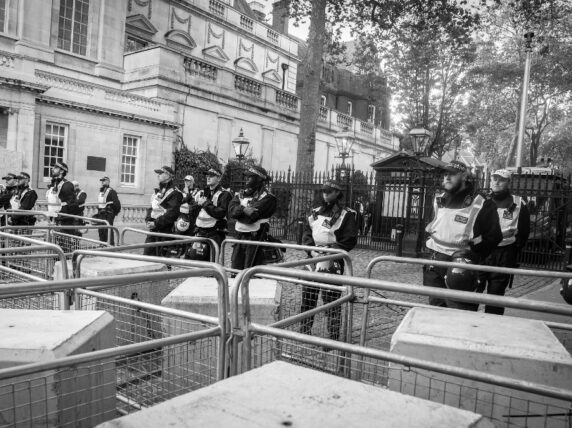Youth climate strike: The UK must act now on the climate emergency
This Friday, people across the UK will be joining young people in the UK and around the world in a global climate strike to demand more action from governments to tackle the climate emergency urgently.
We will be calling for the UK government to act at home, and through support to poorer countries, which have contributed least to the climate crisis but bear the brunt of the problem the most.
Young people have rightly taken charge of this agenda and are hitting home the message that a lack of radical action from adults to tackle climate change is unacceptable. Young people around the world need to be part of the solution as they are the ones with the biggest stake in our future. The best way to do this is to ensure their voices are brought into the policymaking process.
This year marks a step forward by the UK in its mindset to tackle climate change. Thousands if not millions will take to the streets in protest this Friday. Only a few months ago the UK enshrined in law a commitment to ensure the country achieves net-zero carbon emissions by 2050 and last week the UK, in partnership with Italy, secured the nomination to host COP26 (the vital international climate change negotiations in 2020).
Subscribe to our newsletter
Our weekly email newsletter, Network News, is an indispensable weekly digest of the latest updates on funding, jobs, resources, news and learning opportunities in the international development sector.
Get Network NewsBut the reality is our leaders have fallen short in their actions and haven’t acted urgently enough or taken this emergency seriously enough by putting forward the policies needed to both mitigate and adapt to the consequences of climate change.
Yes, UK aid has supported actions to cut greenhouse emissions around the world, as well as help poor people already impacted by climate change. But the irony is not lost on us that the UK is still investing in fossil fuel power generation and exploration, a major cause of climate change. Bafflingly, some of this done with official development assistance (ODA) which tells you just how unaligned our cross-government work is when it comes to climate change.
This incoherence needs to stop immediately and the UK must wholeheartedly commit to renewable sources of energy. This must be the future if we are to even have a future.
All aid, whether it is invested in boosting jobs and economies in the global south or whether it is used to rebuild homes lost to flooding, must be aligned with the Paris Agreement, contributing to global and collective efforts to limit global warming to 1.5°C. UK aid must support only truly sustainable development, and contribute to the rehabilitation of degraded natural resources and strengthening of the ecosystems upon which lives, and livelihoods depend.
The science tells us we are running out of time, with the latest IPCC report clearly warning that we have only 11 years left to act to limit global warming to 1.5℃. This is a climate emergency, and this is our last chance to act. On Monday, global leaders will meet at the UN Climate Action Summit, and we will be watching with bated breath to see whether young people and civil societies voice has been heard clearly enough this Friday.
Read Bond’s four priorities for the UK at the UN General Assembly, which includes working closely with other countries to tackle the climate and environmental emergency.
Listen to our podcast on how NGOs can tackle the triple challenges of climate change, eliminating poverty and protecting the natural environment.




